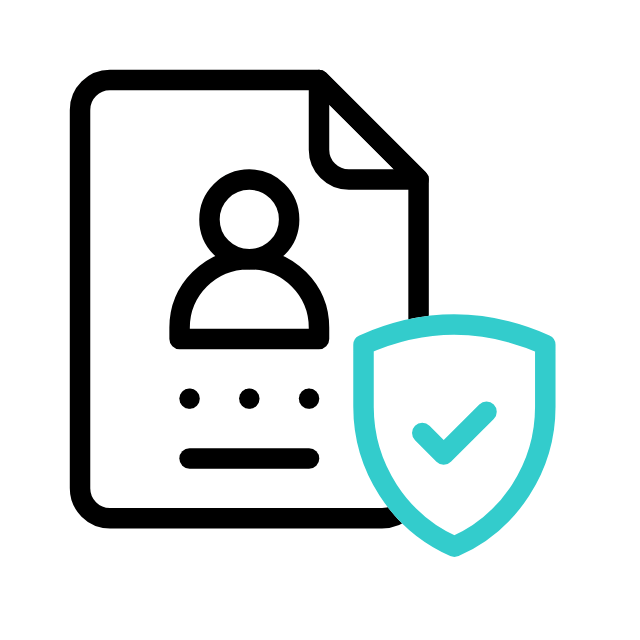DOCUMENTING EASTERN VISAYAN INDIGENOUS TOYS AS EDUCATIONAL ALTERNATIVES TO ADDICTIVE MODERN GADGETRY
Maqola haqida umumiy ma'lumotlar
Before the advent of computer technology, children and young people of the Eastern Visayas region in the Philippines engaged themselves in fun games using homemade toys readily available in the immediate environment. These toys could develop physical strength, mental alertness, teamwork, and social interactions when played with. But when the advancing computer technology came with its gadgets that are getting hi-tech over time, plus the numerous digital games that they bring, children became glued to these computerized games, their productive times consumed, their attention stolen, their studies and household duties neglected. Hence, to many of these youngsters, obsession with these gadgets even worsened into addiction. To somehow divert their attention without altering their natural playful tendency, this study was conceived by way of documenting the native toys of old that could generate fun games among children and young people. Using the descriptive method, this qualitative study chose participants across the region aged 40 and above, providing the data on what those toys are and the rules of the games. The results of this study could invite attention to these toys that have been mostly forgotten and ignored. Their retrieval and reintroduction especially in educational institutions could somehow divert the interest among these kids, saving them thus from too much exposure and destructive addiction to modern gadgetry.
- Creswell, JW. (2007). Qualitative Inquiry and Research Design: Choosing Among Five Approaches: International Student Edition. Sage Publications.
- Christakis, D.A., Zimmerman, F.J., and Garrison, M.M. (2007). Effect of block play on language acquisition and attention in toddlers: a pilot randomized controlled trial. Arch Pediatr Adolesc Med. 161(10), 967-71.
- Delve, H. L., & Limpaecher, A. (2020). What is Narrative Analysis? Essential Guide to Coding Qualitative Data. https://delvetool.com/blog/narrativeanalysis
- Dicicco-Bloom, B. and Crabtree, B.F. (2006). The Qualitative Research Interview. Medical Education, (40), 314-321. http://dx.doi.org/10.1111/j.1365-2929.2006.02418.x
- Elhai, J. D., Levine, J. C., Dvorak, R. D., & Hall, B. J. (2017). Non-social features of smartphone use re Momst related to depression, anxiety and problematic smartphone use. Computers in Human Behavior, (69), 75-82. https://doi.org/10.1016/j.chb.2016.12.023
- Elkind, D. (2008) The power of play: Learning what comes naturally. American Journal of Play, 1(1), 1–6.
- Ginsburg, K (2007) The importance of play in promoting healthy child development and maintaining strong parent-child bonds, Paediatrics, (119), 182–191, in BTHA (2011) Active Play and Healthy Development. Available online at: http://www.btha.co.uk/consumers/template.php?id=169 (Accessed Nov. 2011).
- Hashmi, S., Vanderwert, R.E., Paine, A.L., & Gerson, S.A. (2022). Doll play prompts social thinking and social talking: Representations of internal state language in the brain. Dev. Sci., (25), 13163.
- Hassan, N. M., Kassim, E. S., Maon, S. N., Atiqah, N., Demong, R., Naziha, S., & Kholed, S. (2017). Technology, social network, physiology and psychology as risk factors to mobile phone addiction. Pertanika Journal of Social Science and Humanities, (25), 341-349.
- Haque, A. T. M. E., Sugathan, S., Ali, O., Islam, Z., & Haque, M. (2016). Use of electronic devices by the medical students of Unikl-Rcmp, Malaysia, and its influence on academic performances. National Journal of Physiology, Pharmacy and Pharmacology, (6), 38-45. https://doi.org/10.5455/njppp.2015.5.2709201577
- Khan, I., Nawaz, A., Khan, M.S. (2013). Determining the organizational commitment of academicians in public sector universities of developing countries like Pakistan. International Journal of Academic Research in Economics and Management Sciences, 2(1), 361-374. ISSN: 2226-3624
- Khan, W. Z., Xiang, Y., Aalsalem, M. Y., & Arshad, Q. (2013). Mobile phone sensing systems: a survey. IEEE Communications Surveys & Tutorials, (15), 402-427.
https://doi.org/10.1109/SURV.2012.031412.00077 - Lester, S., and Russell, W. (2010). Children’s Right to Play: An Examination of the Importance of Play in the Lives of Children Worldwide. Bernard van Leer Foundation.
- Malecela, I. O. (2016). Usage of Whatsapp among postgraduate students of kulliyyah of education, International Islamic University Malaysia. International Journal of Advanced Engineering Research and Science, (321), 126-137. https://doi.org/10.22161/ijaers/310.21
- Mat Sharif, E. A., & Omar, S. Z. (2013). An acceptance of 4G (Fourth Generation) mobile network in Malaysia. International Journal of Information and Communication Technology Research, (3), 232-237.
- McKechnie L. E. F. (2008). Observational research. In Given L. M. (Ed.), The Sage Encyclopedia of Qualitative Research Methods (573–577). Sage.
- Munn, Z., Stern, C., Aromataris, E., Lockwood, C., & Jordan, Z. (2018). What kind of systematic review should I conduct? A proposed typology and guidance for systematic reviewers in the medical and health sciences. BMC medical research methodology, 18(1), 1-9.
- Newman, S.D., Loughery, E., Ecklund, A., You, C., Von Werder, H., & Soylu, F. (2021). Structured versus free block play: the impact on arithmetic processing. Trends Neurosci Educ. (22), 100146.
- Oostermeijer, M., Boonen, J.H., and Jolles, J. (2014). The relation between children’s constructive play activities, spatial ability, and mathematical word problem-solving performance: a mediation analysis in sixth-grade students. Frontiers in Psychology (5), 782.
- Pirrone, C., Tienken, C.H., and Di Nuovo, S.F. (2018). The influence of building block play on mathematics achievement and logical and divergent thinking in Italian primary school mathematics classes. The Educational Forum, (82), 40-58.
- Ranjan, B., Malay, G., Kaustav, C., & Kumar, M. S. (2013). Gadget addiction, technostress & internet addiction: upcoming challenges. Bengal Journal of Private Psychiatry, (2), 1-36.
- Schmitt, S.A., Korucu, I., Napoli, A.R., Bryant, L.M., Purpura, D.J. (2018). Using block play to enhance preschool children’s mathematics and executive functioning: A randomized controlled trial. Early Childhood Research Quarterly, (44), 181-191.
- Suki, N. M. (2013). Students’ dependence on smart phones: the influence of social needs, social influences and convenience. Campus-Wide Information Systems, (30), 124-134. https://doi.org/10.1108/10650741311306309
- Teong, K. V., & Ang, M. C. H. (2016). Internet use and addiction among students in Malaysian public universities in East Malaysia: some empirical evidence. Journal of Management Research, (8), 31-47. https://doi.org/10.5296/jmr.v8i2.9092
- Thupayagale-Tshweneagae, G., Nkosi, Z., Moleki, M., & Human, S. (2014). The use of mobile phone technology as an assistive tool for emotional support of adolescents orphaned by aids in South Africa. African Journal for Physical, Health Education, Recreation & Dance, (20), 698-709.
- Turner, A. (2015). Generation Z: technology and social interest. The Journal of Individual Psychology, (71), 103-113. https://doi.org/10.1353/jip.2015.0021
- Vandenbos, G. R., & American Psychological Association (APA) (2015). APA Dictionary of Psychology. https://doi.org/10.1037/14646-000
- Wolfgang, C.H., Stannard, L.L., and Jones, I. (2001). Block play performance among preschoolers as a predictor of later school achievement in mathematics. Journal of Research in Childhood Education 15(2): 173-180.
- Yelland, N., Moyles, J. (2015). The Excellence of Play, 4th edn. Open University Press.
- Zulkefly, S. N., & Baharudin, R. (2009). Mobile phone use amongst students in a university in Malaysia: Its correlates and relationship to psychological health. European Journal of Scientific Research, (37), 206-218.
Montallana, C. L., Tesado, J. C., Pagliawan, D. L., & Soniedo, F. C. (2023). DOCUMENTING EASTERN VISAYAN INDIGENOUS TOYS AS EDUCATIONAL ALTERNATIVES TO ADDICTIVE MODERN GADGETRY. Academic Research in Educational Sciences, 4(4), 329–339. https://doi.org/
Montallana, Clemelle, et al. “DOCUMENTING EASTERN VISAYAN INDIGENOUS TOYS AS EDUCATIONAL ALTERNATIVES TO ADDICTIVE MODERN GADGETRY.” Academic Research in Educational Sciences, vol. 4, no. 4, 2023, pp. 329–339, https://doi.org/.
Montallana, L., Tesado, C., Pagliawan, L., and Soniedo, C. 2023. DOCUMENTING EASTERN VISAYAN INDIGENOUS TOYS AS EDUCATIONAL ALTERNATIVES TO ADDICTIVE MODERN GADGETRY. Academic Research in Educational Sciences. 4(4), pp.329–339.
 O'zbekcha
O'zbekcha English
English Русский
Русский


